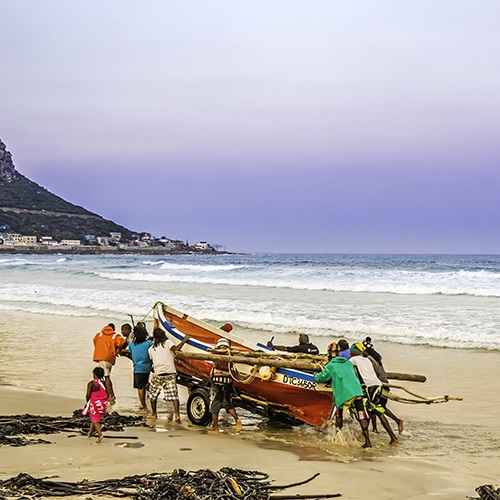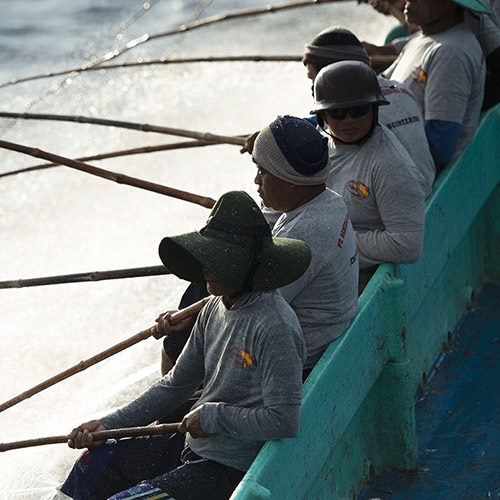Initiated by the Marine Stewardship Council, Fish for Good is a four-year project aimed at guiding fisheries in Mexico, Indonesia and South Africa towards more sustainable fishing practices.
Fish For Good | Mexico
Why Mexico?
To date, four Mexican fisheries are MSC certified: a red lobster fishery, two small pelagic fisheries and a tuna fishery.
The Mexican market is also increasingly interested in sustainable seafood products. In collaboration with the Mexican campaign PescaConFuturo, the MSC has highlighted the importance of maintaining healthy fish stocks to guarantee food and economic security for future generations and to safeguard the natural wealth of the Mexican waters. Fish for Good makes use of this momentum and joined forces with the Mexican NGO Pronatura Noroeste to guide nine fisheries in the northwest of Mexico towards more sustainable fishing practices.
How does it work?
Stage 1 - mapping
The MSC and Pronatura Noroeste conduct a scan of 31 fisheries in the northwest of Mexico. Those fisheries are mapped according to their:
- economic value
- market potential
- food security
- area(s) fished
- gear(s) used
- catch volumes
- stock status
- environmental impacts
Stage 2 - pre-assessments
The Fish for Good advisory group evaluates the findings and selects nine fisheries to be pre-assessed against the MSC Fisheries Standard. The pre-assessment process measures the performance of each fishery and identifies areas for improvement. Pre-assessment of the fisheries is undertaken by an accredited third-party assessor.
Fisheries undergoing pre-assessment
- octopus
- barred sand bass
- two chocolate clam fisheries
- red sea urchin
- red lobster
- yellowfin tuna
- multi-species finfish fishery in Baja California Sur
- multi-species finfish fishery in Nayarit
Stage 3 - action plan development
At the end of pre-assessments, a report will identify where fisheries need to improve to meet the MSC Fisheries Standard and be certified as sustainable. From this point, action plans are developed with proposals for how to make the necessary improvements.
Action plans are developed by local organisations. The MSC supports these organisations by supplying them with templates and guidance on global best practice.
Each action plan is different and addresses challenges specific to each fishery. Actions may include:
- Adding onboard observer programmes
- Implementing vessel tracking systems
- Improving baitfish management
Stage 4 - implementation
The octopus and barred sand bass fisheries are currently implementing the actions identified in Stage 3 in order to improve their management sustainability. You can view their progress at https://fisheryprogress.org/
Advisory Group
Our Mexican Advisory Group provides independent advice and guidance to ensure the effectiveness and transparency of the activities to deliver the Fish for Good project objectives. The role of its members includes advice on which fisheries to select for pre-assessment, action plan development and recommendations along the process.
Members of the Mexican advisory group are representatives from the governmental organisations Conapesca and Inapesca, the NGO Pronatura Noroeste, the University of Baja California,Pesquera Miramar, Federación Regional de Sociedades Cooperativas Pesqueras and S.P.R. Litoral de Baja California.
Want to know more?
Contact [email protected]Fish for good projects

Fish for Good - South Africa
South Africa is flanked by two diverse large marine ecosystems (LMEs). Fishing is important to the economy and for the livelihoods of coastal communities.

Fish for Good - Indonesia
Indonesia is the world's second largest fish producer. Some stocks are being overfished. Local food security, economy and marine biodiversity are at risk.

Fish for Good - Mexico
Increasing interest in sustainable seafood products in the Mexican market is matched by the need to safeguard food, local economic security and the natural wealth of Mexican waters.

